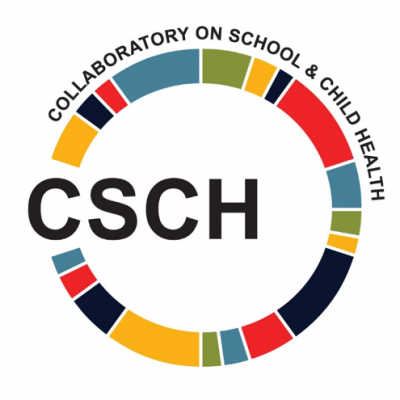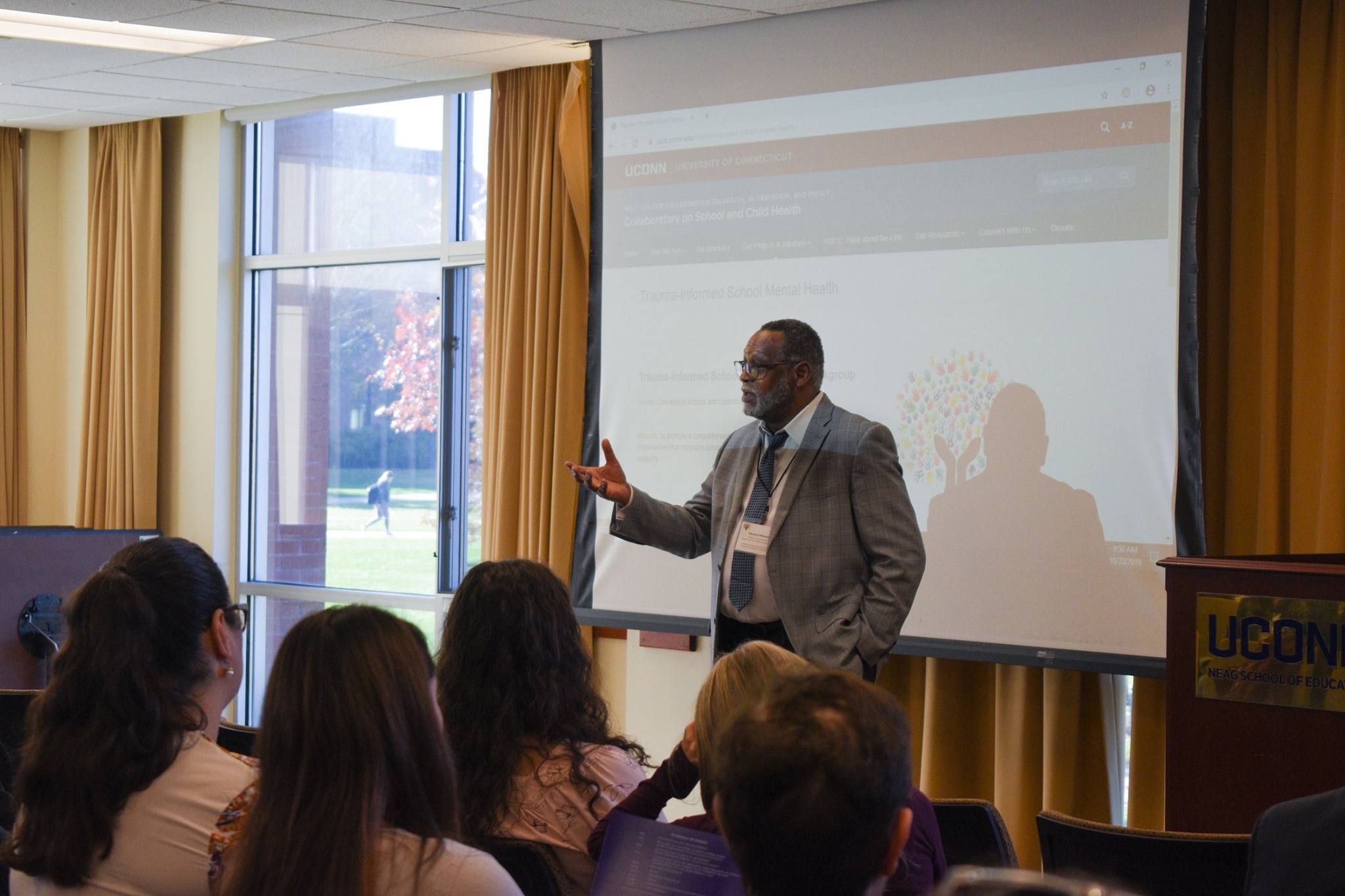Approximately 70 school, behavioral health, community, and research leaders from across the state gathered at the University of Connecticut campus in Storrs on Wednesday, Oct. 23, 2019, to discuss school and community responses to childhood trauma and how to align work around trauma-informed schools in Connecticut.
The event, “Symposium on Trauma–Informed School Mental Health 2.0,” was the result of collaboration between the University of Connecticut Collaboratory on School and Child Health, the Ana Grace Project, Capitol Region Education Council, the Child Health Development Institute, Clifford Beers Clinic, the state Department of Children and Families, the state Department of Education, and the University of Connecticut Neag School of Education. The symposium’s main goal was to continue conversations about broadening and aligning work around trauma-informed schools in Connecticut, moving forward the work of the Connecticut Trauma-Informed School Mental Health Task Force, a group that was formed after the original symposium in May 2017.
“In Connecticut, we have a lot to be proud of. But there is still a lot of work to do. We can’t rest on our laurels. When we talk about trauma–informed care, let’s make sure we’re talking about all kids.”
— Michael Williams, DCF Deputy Commissioner
Opening remarks were provided by Nelba Marquez-Greene of the Ana Grace Project, who charged participants with the question: “Who will you give a voice to, and how will you do this with integrity?” Jeana Bracey from the Child Health and Development Institute and Tim Marshall of the Connecticut Department of Children and Families, members of the Task Force steering committee, then hosted a kick-off discussion and DCF Deputy Commissioner Michael Williams offered comments to encourage forward movement. “In Connecticut, we have a lot to be proud of,” he began. “But there is still a lot of work to do. We can’t rest on our laurels. When we talk about trauma–informed care, let’s make sure we’re talking about all kids.”
Attendees broke into facilitated discussion groups to focus on prevention through screening/early identification; enhancing services to meet intensive needs; aligning policies and practices to facilitate sustainability; and building collaborations across public-private partnerships. Group facilitators were charged with establishing questions to discuss challenges, opportunities, and actions relevant to the topic area. John Frassinelli, Bureau Chief of the Health, Nutrition, & Family Services Bureau at the Connecticut State Department of Education, shared that sustainability requires thinking about strategies rather than programs, and that school leaders must ask “what is the problem that this is trying to solve?” when considering something new.
The groups later reconvened to summarize the big ideas. Participants put forward ideas such as embracing focus on core values (e.g. healthy relationships) over specific programs, the creation of a road map and state consensus on mental health screening in schools, a state-level shift on how to define child success that is consistent across districts, the importance of supporting social-emotional needs of staff, and the importance of engaging families and the community in addressing childhood trauma.
Jeana Bracey, Associate Vice President for School and Community Initiatives at the Child Health and Development Institute, and Sandra Chafouleas, Board of Trustees Distinguished Professor in the Neag School and Co-Director of the UConn Collaboratory on School and Child Health, are co-chairs of the Connecticut Trauma-Informed School Mental Health Task Force. They reflected on the energy of participants from across sectors who were excited to come together to tackle issues around supporting schools in sustained implementation of trauma-informed policies and practices that meet diverse needs. “The first symposium in 2017 focused on increasing awareness of childhood trauma and started to talk about how to address it as a state,” said Bracey, “Last time, we focused on talking about it, on thinking about it. This time we are focused on getting it done.” Chafouleas echoed the energy around action, noting participant “commitment to whole child well-being and agreement around healthy relationships are a critical foundation.”
Learn more about the Collaboratory on School and Child Health (CSCH).



